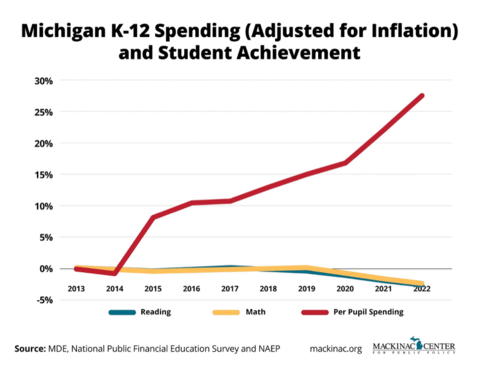Labor Day is a good time for Michiganders to remember their labor rights
CapCon gives brief history of labor law
As most Michiganders take a day off from paid labor, it is a good time to learn about workers’ rights here.
Unions have traditionally had a strong influence on labor policies in Michigan, though state residents did have a 14-year period during which they were not required to pay unions, even if they were employed in a unionized worksite. Things changed on Feb. 13, however, when right-to-work was no longer the law of the land for workers in the private sector.
Until 2012, Michigan’s laws heavily favored unions. Anyone who gained employment in a unionized facility had to pay union dues. Those who did not want to pay due still had to pay an agency fee, which was nearly as much as dues. Unions are required by law to calculate their political expenses and charge those costs to members, not fee-payers.
Public sector employees gained the right to be fee-payers by the U.S. Supreme Court ruling in Abood v. Detroit Board of Education, delivered May 23, 1977. Requiring a worker covered by a union contract to also pay the union for its political activity violates the worker’s First Amendment rights, the court ruled.
In 1999 the Mackinac Center for Public Policy published a report explaining labor law in Michigan. After the report came out, the state enacted and then repealed a right-to-work law, so some of it is obsolete. But the report still has a useful account of the state’s labor history.
During Michigan’s brief era of right-to-work, people had the power to refrain from union membership and fees, whether they were in the private sector or the public sector.
In 2018 public workers nationwide gained more freedom when the Supreme Court, in Janus v. AFSCME, ruled that unions could not compel workers to pay dues or fees. It said that public sector unions are inherently political organizations, so compelling payments to them would be to compel workers to engage in political speech.
Franklin D. Roosevelt, a pro-union president, opposed the idea of letting public sector unions organize. Roosevelt said public sector union strikes are “unthinkable and intolerable.” It was not until the John F. Kennedy administration that the federal government recognized unions.
While the Janus ruling frees public sector workers everywhere freedom from union mandates. the same is not true of those in the private sector. There, state law rules. In Michigan, that means mandatory agency fees for people covered by a collective bargaining agreement.
If you are a public sector worker and are being misled into believing you are required to pay anything to a union as a condition of employment, contact the Mackinac Center Legal Foundation. It will help ensure that your rights are protected.
Michigan Capitol Confidential is the news source produced by the Mackinac Center for Public Policy. Michigan Capitol Confidential reports with a free-market news perspective.


 Dues-skim union has no bargaining power for home care providers
Dues-skim union has no bargaining power for home care providers
 Teamsters threatened us for not authorizing paycheck deduction, nurses allege
Teamsters threatened us for not authorizing paycheck deduction, nurses allege


 Michigan Education board member claims funding cuts after record funding
Michigan Education board member claims funding cuts after record funding
 Whitmer admits education system failing despite increased spending
Whitmer admits education system failing despite increased spending
 Carrollton teacher hopes that Michigan lawmaker ‘chokes on a bag of [expletive] and dies’
Carrollton teacher hopes that Michigan lawmaker ‘chokes on a bag of [expletive] and dies’